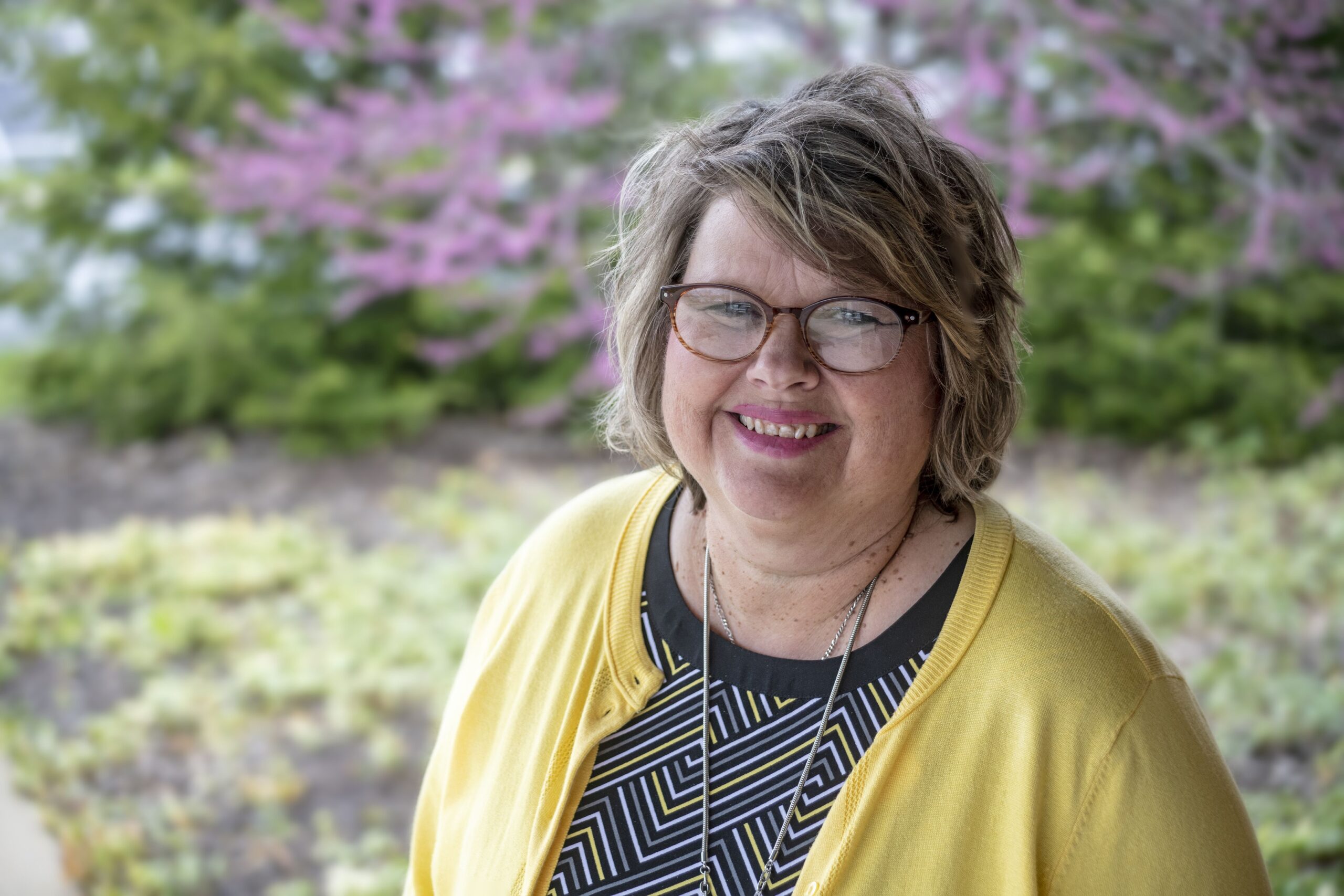NEWTON, Kansas (Mennonite Mission Network) — The seeds of Mennonite Mission Network’s ongoing evolution of walking together with partners in mission were sown and cultivated by many committed leaders, including J.D. Graber, Irene and Ed Weaver, Miriam E. Krantz and Stanley W. Green.
Mission Network leaders who were mentored by the late Wilbert Shenk — another one of those committed leaders —are dedicated to carrying on his legacy of mission, which emphasizes partnerships with others in their cultural contexts. Shenk’s passing in July has triggered reflection as Mission Network undergoes its major internal realignment.
Mike Sherrill, executive director and CEO of Mission Network, is one of Shenk’s mentees. Shenk’s vision-casting and teaching has helped Sherrill take innovative steps in realignment, which gives the opportunity to respond to the movement of the Holy Spirit by:
- Extending Mission Network’s capacity to serve global partners and Mennonite Church USA (MC USA) conferences and their congregations.
- Revitalizing the agency’s commitment to BIPOC (Black, Indigenous and People of Color) communities.
- Growing Mission Network’s capacity for discipleship training and church planting bilingually, with global networking.
- Implementing anti-racism throughout the entire agency to become a truly anti-racist workplace.
Sherrill first met Shenk in 1994, while studying at Anabaptist Mennonite Biblical Seminary, and was under his mentorship while earning a doctoral degree and serving as a mission worker in Japan. Having engaged with Shenk until his death, Sherrill said his mentor imparted a vision of "with-ness" — accompanying people in their cultural context, being the presence of Christ, as one lives and walks alongside others in mutual relationships.
"Mission Network has had this understanding and model of missions for some time already," Sherrill said. "It means that, rather than bringing something that we think they need, … we walk together, as pilgrims on the journey, and we share a mutual discovery of God’s activity in the world."
Grasping the mantle handed to him from Green, Mission Network’s first executive director and CEO, the realignment that Sherrill initiated is another step in the continued work of mutual pilgrimage. Anabaptist communities across the world are seeking to be part of the larger global Anabaptist story, Sherrill said.
"In many parts of the world, there is a growing appreciation, especially among the oppressed and marginalized, for alternatives to violence and aggression," he said. "The Anabaptist pursuit of justice, coupled with the call of Jesus to love your enemy, draws keen interest."
The agency’s newly created Ventures division aims to better unify its response to the many calls for developing mutual partnerships. The division combines Mission Network’s global partnerships, service programs, training, resources and constituent engagement.
In tandem with this change, Mission Network, the mission agency of MC USA, is more deeply linking with MC USA’s Executive Board staff to equip and resource area conferences and congregations in their North American contexts, Sherrill said.
Many ‘children’ of Shenk’s vision grow into maturity
Shenk served as a mentor to many, including Steve Wiebe-Johnson and Sharon Brugger Norton, Mission Network’s co-directors for Africa and Europe.
Wiebe-Johnson, who first met Shenk at a Mennonite Board of Missions (a predecessor agency to Mission Network) colloquium in Belgium in 1979, said that Mission Network’s current relationships in Europe and much of Africa flow out of Shenk’s vision for engaging the church in Europe.
"Sharing an Anabaptist witness with students was a way of connecting with the students, and then, the students themselves could carry that Anabaptist witness back to their home countries," Wiebe-Johnson said. "Getting to know Africans in Europe was also a way of becoming familiar with African issues and concerns from African perspectives. This, in turn, shaped [Mission Network’s] mission engagement in Africa, focusing on African Independent Churches [AICs]."
James Krabill, a former colleague of Wiebe-Johnson, as well as a leader in the agency, said, "Wilbert was, in fact, the architect of Mennonite partnership ministries with AICs — a partnership in 10 African countries, which has lasted now for over 60 years. In a book to be released this month — Unless a Grain of Wheat — Shenk recounts the history of those remarkable relationships, in what will likely be his last published work in a long and prolific writing career."
Brugger Norton said she had only a few personal encounters with Shenk in the last decade of his life. However, she knew of him prior to that and was introduced to Shenk’s missiology by Krabill when she joined Mission Network’s staff.
Today, many churches want to replicate themselves to ensure their legacy is perpetuated and strengthened, she said. "It requires a good dose of humility and maturity to let go of that kind of motivating factor and trust that God will take these seeds that have been scattered and use them for God’s own purposes in ways we don’t control."
Brugger Norton said she admires Shenk’s strategic thinking, maturity and trust and sees the fruits of his method decades after its inception.
"The natural fruit of Wilbert’s strategy is that, while we intentionally try to influence people in the ways of Anabaptism, we do not try to control the outcomes," she said. "… We look for partners who want to be in mutually meaningful relationships, where gifts and experience flow in multiple directions. … We succeed when our partners succeed."
Green expanded on this idea of mutual partnership during his tenure as executive director and CEO of the agency, a legacy that Sherrill is carrying forward today. In Extending Beyond August 2019, Green wrote that in the last several decades, Mission Network (and its predecessor agencies) have steadily moved away from any form of mission characterized by imperialistic and denigrating paternalistic approaches.
"This alternative mode of being in mission is to walk in the way of Jesus, embracing weakness and vulnerability instead of attitudes of superiority," he wrote. "Our priority is to respect the integrity, creativity and dignity of those with whom we work in a spirit of reciprocity and mutuality."
Linda Shelly, Mission Network’s director for Latin America, said a strong thread of Green and Shenk’s vision was to join others in what they are already doing to follow God in mission. Shelly said Mission Network values the ministry that Latin American partners are doing in their own contexts and recognizes their vision and commitment in serving beyond their home communities.
"Our involvement is shaped by how we are invited to serve together," Shelly said. "For example, the Iglesia Cristiana Menonita de Colombia [Colombia Mennonite Church] began serving in the neighboring countries of Peru and Venezuela, and along with local leaders in those contexts, invited Mission Network to join what they were already doing. In the case of Venezuela, this resulted in a mission partnership that also includes Central Plains Mennonite Conference. The church-to-church relationships that develop with MC USA congregational participation are meaningful in multiple directions."
Partnering with MC USA’s area conferences and congregations
A significant hope in realignment is to become responsive to MC USA congregations in ways similar to how Mission Network works with partners globally, said Marisa Smucker, senior executive for Mission Network’s Ventures division.
"In the United States, we have, in the past, been more effective in developing programs that respond to a mission vision among the congregations that are predominantly White," she said. "Realignment will structure our roles to provide additional time to listen to the mission visions of congregations that are predominantly BIPOC and learn the ways in which partnering together would be beneficial."
Most importantly, realignment in the "walking together in mission" spirit of Shenk, and other missiology mentors, is responding to the global community’s hunger for mutual partnership, Sherrill said.
"I am excited about how the Anabaptist global community is engaged in mutual learning, encouragement and growth, east to west, south to north, fostering Christian vitality that the world notices," he said. "If people tell you that the era of missions is over, don’t believe them. The Holy Spirit is working in every corner of the globe, and the urgent call remains to joyfully and energetically partner in God’s mission in the world."








